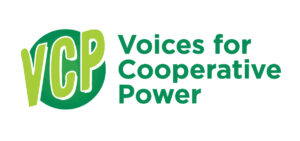Township government is not as high profile or as politically oriented as other forms of government. Most township officials are just average folks who want to have a leadership role in their community and make a difference. And most of the services they provide aren’t headline grabbers — just fundamental services like road maintenance and human service programs that help improve the quality of life, one person at a time.
We like to think that this is a good thing.
But there is a down side. Township government is so low profile, many people don’t know who we are and most importantly, what we can do for them.
That’s bad for two reasons: One is that township government is like any other form of government in that it works best when people get involved. Your opinion and your vote are important, so it’s critical that people be informed.
The second reason is that townships provide a lot of services that can help people if they know about them.
Township government is the oldest existing form of government in North America. Townships are still required to hold town meetings annually on the second Tuesday in April. This is a unique feature of townships, and it is the only forum that allows people to have a direct voice and vote in their local government.
Today, there are 1,431 townships in Illinois, serving more than 8 million people. What confuses many people is where townships fall in relation to city, county and state government.
Townships are not subsets of cities or counties, but individual geographical designations. So a large city may contain several townships. At the same time, one township may include several small towns. Townships also may cover many rural, unincorporated areas. This is important because certain services in these areas may not fall under any other government. And even if they do, townships are often able to deliver those services more effectively, at a lower cost, and with less red tape.
So what do townships do? Townships have mandated functions, but may provide a number of additional services. Every township in the state of Illinois is mandated to provide:
› Road and bridge maintenance. Townships maintain about 71,000 miles of Illinois roads-that’s more than half of the total road miles in the state. In large cities, the city typically oversees this function.
› Property assessment. To keep assessments local and ensure fair market value, the township assessor oversees the appraisal process for every property within their township.
› General assistance to the needy. That can mean a lot of different things, but typically, it means providing temporary relief for people in need, perhaps due to a recent crisis or natural disaster, until those individuals can either become self-supporting or qualify for other forms of assistance.
One of the reasons townships are so effective is that they can respond directly to a community need. Where larger units of government might have to go through paperwork and delays, township government is better equipped to respond immediately and a lot more efficiently.
However, townships often do a lot more than that. Again, because townships are close to the community, most have taken steps to pinpoint needs within their communities and design creative programs to help fill those needs. These “optional” services run the gamut, and include everything from shoveling the sidewalk of a person with a disability, to running hospitals and recreation centers.
Many townships offer special services for youth, like mentoring, career fairs and recreational programs. Senior services are also common. These include grocery services, educational classes and social services. Other programs and services administered by townships include libraries, water and sewage systems, cemeteries, fire and ambulance services, immunization and other low-cost health care programs and voter registration.
Townships are known for delivering these services inexpensively. We have limited budgets, so these “optional” services often have to pay for themselves, or be administered with the help of volunteer efforts or grant funds. And this has led to some really great partnerships.

Bryan E. Smith is Executive Director of Township Officials of Illinois, http://www.toi.org
One of the nice things about township government is that there is a human element. Many of the programs and services we provide are “people programs” that address quality of life issues and have a direct impact on our communities.
This is just a sampling of what townships provide. If you have questions about township government, please contact me at bryan@toi.org.








